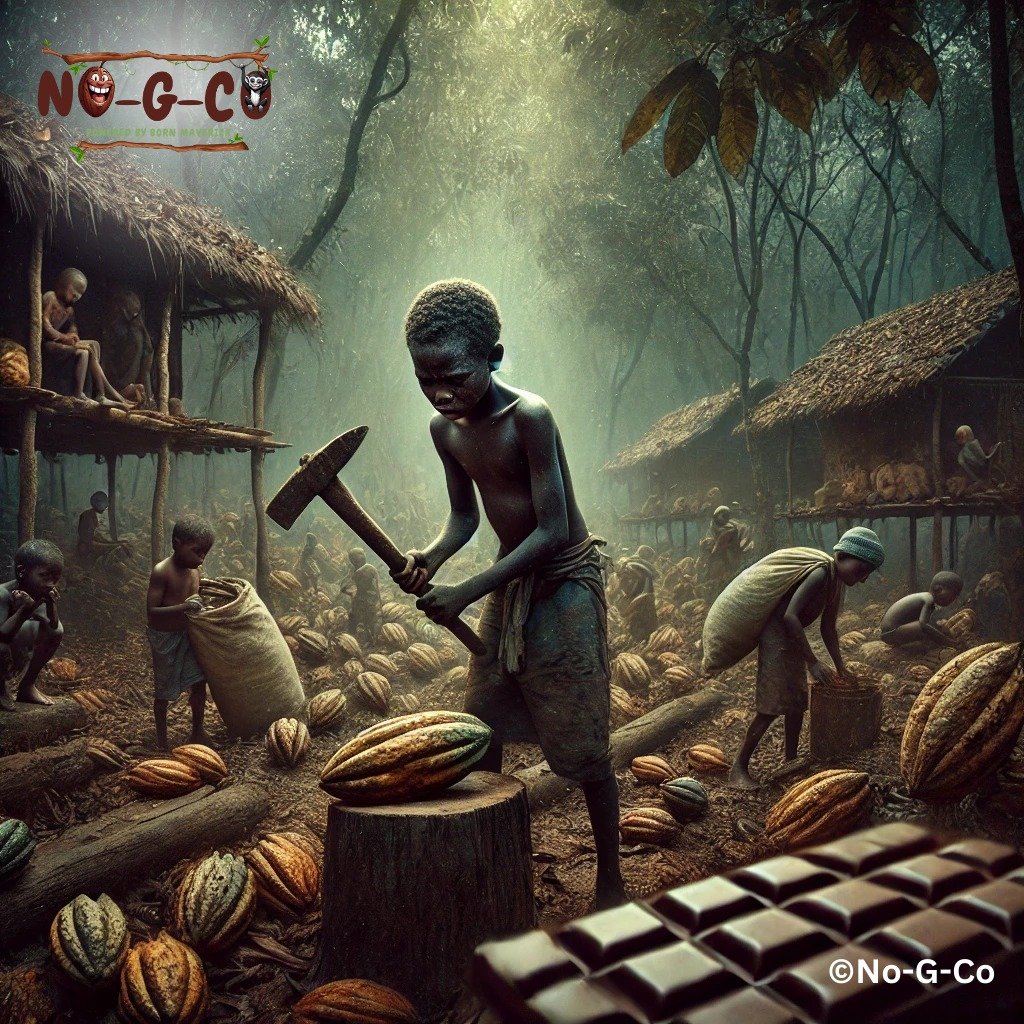The Bitter Truth Behind Your Sweet Treat
The Bitter Truth Behind Your Sweet Treat:
The Human Cost of Chocolate
Imagine a world where every bite of your favorite chocolate bar is tainted with the silent cries of children. Behind the smooth, rich taste that melts in your mouth lies a story of suffering and exploitation. This is the dark, often hidden reality of the cocoa industry—a reality that demands our attention and action.
The Hidden Horrors of Cocoa Farms
In the heart of West Africa, where the majority of the world’s cocoa is grown, lies a grim secret. Children, some as young as five, are trafficked and forced into labor on cocoa farms. These young souls, lured by the promise of education and a better life, find themselves ensnared in a brutal cycle of labor and abuse.
Aboudnamune’s story is a chilling example. At 11, he was taken from his home in Burkina Faso to work on a cocoa farm in Côte d'Ivoire. "We are hungry, and we just make a small amount of money," he recounts. His days are filled with back-breaking work, cutting cocoa pods with machetes, and carrying heavy sacks through dense forests. The promise of schooling remains a distant dream
Living in Shadows: The Life of Child Laborers
These children endure conditions that are nothing short of nightmarish. They sleep on wooden planks in cramped, windowless huts, often without access to clean water or proper sanitation. Their diet consists of the cheapest food available, such as corn paste and bananas. Education, a crucial escape route from poverty, is denied to them, trapping them in a cycle of exploitation
Drissa, a freed cocoa worker, shares a haunting reflection: "When people eat chocolate, they are eating my flesh." This stark statement underscores the severe human rights violations these children endure daily
The Corporate Connection
Despite international laws and numerous pledges by major chocolate companies, the problem persists. Companies like Nestlé and Cargill have faced lawsuits alleging their involvement in human trafficking and child labor. A case involving six former child slaves from Mali describes horrific conditions, including beatings and forced confinement. These children, some as young as 10, were made to work under threat of violence, with little hope of escape
While these companies claim to uphold ethical standards, the reality on the ground tells a different story. The systemic issues within the cocoa supply chain, driven by the relentless demand for cheap cocoa, mean that farmers often resort to the cheapest labor available—children.
The Call for Change
Addressing these deep-seated issues requires a collective effort. Governments, corporations, and consumers must unite to ensure that cocoa is produced ethically and sustainably. Initiatives like the Child Labor Cocoa Coordinating Group (CLCCG) and the International Cocoa Initiative (ICI) are steps in the right direction, but they are not enough. We need systemic change, driven by higher cocoa prices and better enforcement of labor laws.
Your Role in the Fight
As consumers, we wield significant power. By choosing to buy ethically sourced and fair-trade chocolate, we can support companies committed to sustainable practices. Spreading awareness about the dark side of chocolate production and advocating for stronger regulations can also make a difference.
Next time you savor a piece of chocolate, remember the faces behind it—the children who labor in the shadows, denied their childhood and education. Your informed choices can help break this cycle of exploitation and bring about lasting change.
Conclusion
The chocolate industry’s dark secret is a poignant reminder of the hidden costs of our indulgences. By raising awareness, advocating for ethical practices, and making informed consumer choices, we can help end the exploitation of vulnerable workers in the cocoa supply chain. It’s time to ensure that our love for chocolate does not come at the cost of innocent lives.

